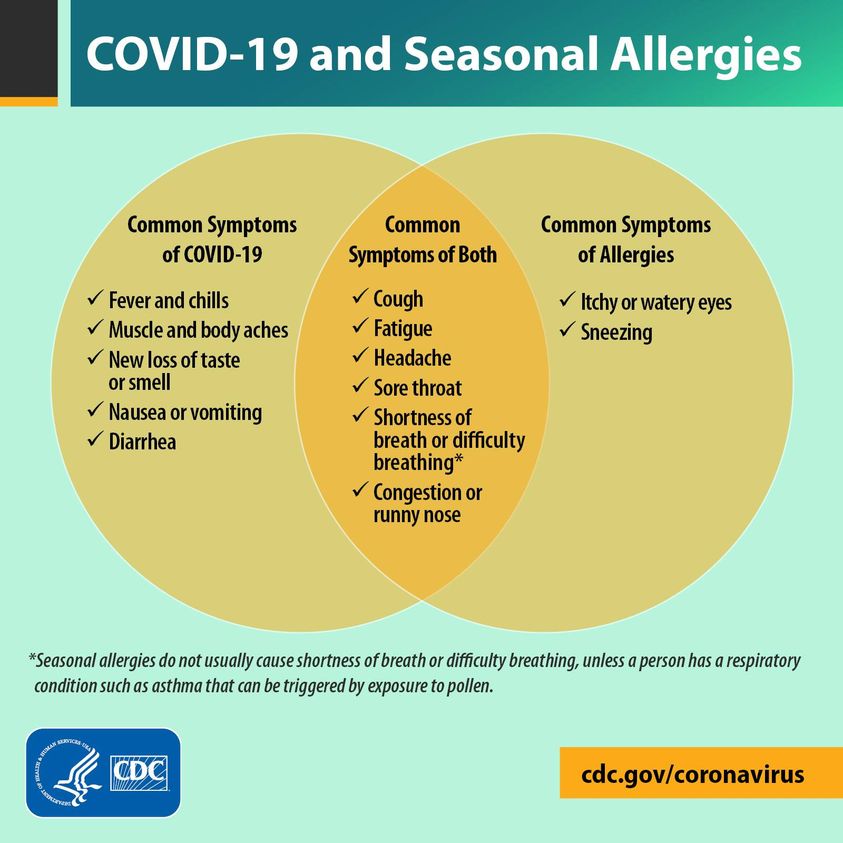When choosing to go out in public or visit a loved one at higher risk, the Centers for Disease Control and Prevention (CDC) recommends we pay close attention to our symptoms. For those of us with seasonal allergies, understanding symptoms can present a challenge!
Seasonal allergies triggered by airborne pollen can lead to seasonal allergic rhinitis, which affects the nose and sinuses, and seasonal allergic conjunctivitis, which affects the eyes. Your sniffles and sneezes may seem like symptoms of COVID-19.
While COVID-19 and seasonal allergies share many symptoms, there are some key differences between the two.
For example, COVID-19 can cause fever, which is not a common symptom of seasonal allergies. The image below compares symptoms caused by allergies and COVID-19.
*Seasonal allergies do not usually cause shortness of breath or difficulty breathing, unless a person has a respiratory condition such as asthma that can be triggered by exposure to pollen.
This is not a complete list of all possible symptoms of COVID-19 or seasonal allergies. Symptoms vary from person to person and range from mild to severe. You can have symptoms of both COVID-19 and seasonal allergies at the same time.
If you think you have COVID-19, follow CDC’s guidance on ”What to do if you are sick.” If you have an emergency warning sign (including trouble breathing), seek emergency medical care immediately.



